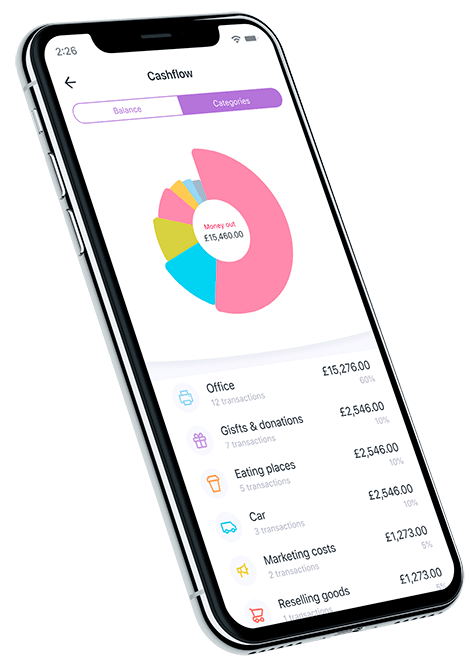Thinking of forming a Limited Company? Get your answers

Amaiz is used by a range of small business owners, including sole traders and limited company directors. We support the former as they move to the latter, but supportive business banking is just one important element to consider when making the change…
Amaiz has been built to respond to the needs of small business owners across multiple industries and at every stage of their journey. Sole traders, limited company single directors, and businesses with one majority shareholder have joined us, and we relish learning more about our customers every day. While many start-ups begin life as limited companies, others consider the change once they’ve reached a position to expand.
But how do you set up a limited company (LTD)? And what are your legal responsibilities once you do?
As our customers know, Amaiz experts are always ready to help you make sense of the details. Here they’ve set out answers to the questions they hear most.
How do I set up a LTD company?
Registering your limited company is easy. You can do this online by paying a registration fee of £12. You’ll receive a certificate of incorporation and a unique company number. What’s different from operating as a sole trader, for example, is that setting up a LTD company means your data such as company accounts and director details will now be available on the Companies House website. The accounts of any company registered as a Private Limited Company are publically viewable. You must make sure that you keep accurate records and that you submit your accounts to Companies House on time.
How can Amaiz help my LTD company?
Amaiz business banking was developed to make running a LTD company a trouble-free experience. The Amaiz app automatically integrates your bank and company details. It records and categorises your key expenses, taking the sting out of tax returns. It lets you raise, issue and track invoices while you’re out and about, but also shifts between app and desktop to suit your lifestyle.
Key deadlines to remember when you’ve formed your LTD company
The key dates you need to know when you’re all set up:
| A | Within nine months of your financial year-end | Remember to file your annual accounts with Companies House |
| B | Within nine months of your financial year-end | Don't forget to pay corporation tax |
| C | Within 12 months of your financial year-end | You must file your corporation tax return |
| D | If you have setup your LTD and NOT traded, file dormant accounts at Companies House | Inform the HMRC that the company is dormant or they will issue a penalty to the LTD |
Do I need to hire an accountant or secretary to look after my admin and books?
You are not legally required to hire an accountant to prepare the accounts of your LTD unless your company is large enough to warrant an audit. You can prepare the accounts yourself providing you understand accounting principles and ensure that your accounts comply to UK GAAP accounting standards or similar accounting standards.
Not having an accountant may save you money in the short term, but a qualified accountant will be better able to advise you of efficiencies including any tax saving opportunities. Amaiz’s expert service includes a team of qualified accountants who can take your questions straight from the app. They’re not there to provide complex advice or take a look at your personal circumstances, but to give you the quick answers and clarifications you need, and point you in the direction of resources that can help.
If you need advice on specific elements of your accounts, such as which expenses you can offset against corporation tax, or whether you have enough retained profit to declare a dividend legally, you should seek the advice of an accountant.
You may think you need to appoint somebody as company secretary. In the past this may have been one of the director’s partners, but as of the Companies Act 2006 it’s no longer a requirement. You can run an LTD with just one director.
What taxes does a LTD company have to pay?
Your LTD company will pay corporation tax of 19% (for 2019/20) on any profit it makes. There are various ways you can reduce your corporation tax bill, such as making sure you claim the correct expenses.
If your business pays yourself or any other directors or employees and pays a salary, you may also have to pay Employer’s National Insurance (approximately 13.8%). If you provide employee benefits such as private medical insurance or a company car, you will also have to pay Class 1A National Insurance. If you run your business from a building you own or rent you may have to pay business rates on the premises.
How long do I need to keep company records for?
You are required to keep all LTD company records, including invoices and bank statements, for seven years (technically, six years from the end of the relevant company financial year). HMRC can ask for these records at any point so it’s recommended that you keep records for as long as you can in case there’s a surprise request.
How do I withdraw money from my LTD company?
A LTD company and its directors are separate legal entities, so any money that you have in a LTD company doesn’t legally belong to any of its directors.
As a LTD company director, there are two ways you can draw money from the company: by paying yourself a salary or a dividend. Another option is called a Director’s Loan. That’s when your LTD company temporarily lends you money. We’ll talk more about that on.
If you want to draw a salary from your business, you may have to register yourself as an employer even if you are the sole director, depending on how much salary you decide to pay yourself. The salary that you pay yourself will be deductible for corporation tax purposes and can be shown as an expense on your profit and loss account. However, remember that any salary you draw from the business will be subject to personal income tax rates payable by yourself. The business may also have to pay Employer’s NI on the salary.
A dividend is one of the most tax efficient ways for you to withdraw money from your LTD. You can also draw a dividend of up to £2,000 without paying tax. Any dividends paid above this amount will be taxed depending on your tax bracket.
How do I pay money into a LTD company?
You can introduce money into a LTD company either by share capital or a Director’s Loan. Introducing money as share capital will dilute share ownership and if the business has a few directors, you may become a bigger shareholder. However, introducing that money as a Director’s Loan and paying it back to yourself will have no effect on the ownership of the business.
What is a Director’s Loan?
If you have taken money out from your LTD company that is not either a salary or dividend, this may be treated as a Director’s Loan. It will need to be noted in the director’s loan account of your company’s accounts.
As you can imagine, Director’s Loan accounts are closely monitored by HMRC through a company’s corporation tax returns, so you must make sure that your records are accurate. If you do have to take money out from your company as a Director’s Loan, it‘s a good idea to keep track of that on a spreadsheet, noting the dates it was taken out and repaid. If you have had to pay money into your LTD company from your personal savings (lent money to your company), this should be recorded on the Director’s Loan account too. If you have lent money to your LTD company from your personal savings, you may charge your company interest for the loan. This interest will count as a business expense for your LTD company and as a personal income for yourself. This personal income will have to be declared on your self assessment tax return.
If you have a company credit card, don’t forget that any personal expenses you have used it for should also be recorded on the Director’s Loan account.
At the financial year-end, your Director’s Loan account will be either overdrawn or in credit. If your Directors Loan account is overdrawn, this means that you have to pay back the money that you have borrowed from your LTD company within 9 months of the financial year-end. If you fail to do so, additional corporation tax of 32.5% may be payable.
Does my LTD company need to be audited?
Your LTD company may need to be audited if at least two of the following criteria apply.
- Your turnover is more than £10.2m
- assets worth more than £5.1 million
- 50 or more employees on average
If you think you may be exempt, check the criteria.
What happens if I don’t generate any business income to begin with?
If a company hasn’t traded for three months following the date of incorporation, a director can voluntarily ask Companies House and HMRC to remove it from the register.
Will I be penalised for late submission of accounts?
You are likely to get a penalty if your accounts have not been filed with Companies House within nine months of the company’s financial year-end. The penalties are as follows:
| Length of period | Penalty |
| Less than 1 month | £150 |
| 1-3 months | £375 |
| 3-6 months | £750 |
| 6 months or more | £1,500 |
Can I change my financial year-end date?
You can change the financial year-end of your company if you wish to, especially in the first year of trading, but do remember that this will have a knock-on effect on your accounts submission deadlines.
You can register a change online or by sending a paper form to Companies House.
Can I carry forward LTD company losses?
You can carry forward losses made in a LTD company indefinitely to reduce profits until the loss is fully utilised.
My company carries out research - can I claim tax relief?
If you’re spending money on Research and Development you may be able to claim R&D tax credits, providing its for a specific project. If you’re developing Patents and earning money from those, you may also be able to claim a reduction in your corporation tax bill from 19% to 10%.
Am I eligible for an Employment Allowance for businesses?
The government has introduced an employment allowance to encourage businesses to employ people. This allowance allows businesses to reduce their Employer’s National Insurance bill by up to £3,000 annually. You can claim it every month you run payroll and use it until it’s fully utilised.
What is a Confirmation Statement?
Every company that is registered as a LTD company at Companies House, whether dormant or trading, is required to file a confirmation statement at least once a year. Before filing a confirmation statement make sure that all details held by Companies House are up to date.
If your company has changed company secretary, any of its directors or registered address, this needs to be updated at Companies House before a confirmation statement is sent.
It’s highly recommended that you register for the Companies House WebFiling service. This allows you to update your company information and submit your confirmation statement online.
How do I report changes to my LTD company?
If you’ve made changes to your LTD company, such as registered address, the number of directors, or a director’s personal details, you are required to report these changes to Companies House. Registering for their WebFiling service lets you report these changes online, but you can also report changes using a paper form.
Any changes you make must be approved by Companies House. For example, if one of your directors has resigned and director names are mentioned in the company letterhead, you should wait for Companies House to approve the change before editing the letterhead.

Amaiz is ready to help you grow your business
Our expert accountants receive a wide-range of questions and we hope some of these answers around LTD companies have helped you.
They’re not the only experts in our business though. Amaiz is built by experts in fintech, marketing, technology, cybersecurity and more. Bookmark this blog to catch the latest articles from our whole team. And the best way to get started...

Download now!
And you can open a business account with all the support you need in minutes.




